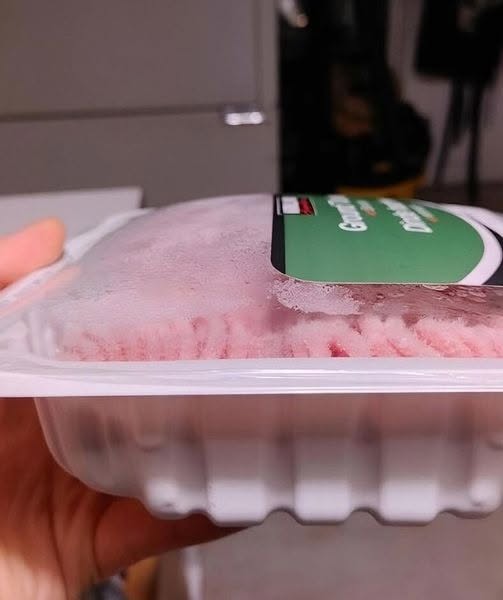ADVERTISEMENT
### 2. **Fermentation**
ADVERTISEMENT
Sometimes, if food contains natural sugars and microorganisms (like in improperly stored dairy or fermented products), gas may form through fermentation.
➡️ This may happen in yogurt, kimchi, or other naturally fermenting foods — but outside of expected cases, it still signals spoilage.
### 3. **Packaging Error**
In rare cases, bloating may occur due to factory issues — like improper sealing or air being trapped during packaging.
➡️ While less dangerous, it still warrants caution, especially if the food is perishable or the seal is broken.
—
## 🚫 When You Should Throw It Out
If you notice **any** of the following with bloated packaging, do **not eat the food**:
* The package is puffed up *and* the food has a strange odor or discoloration
* The product is past its expiration date
* The seal is broken or leaking
* The food is canned and the can is bulging — this can indicate **botulism**, a serious and potentially fatal illness
ADVERTISEMENT
—
## ✅ When It Might Be Okay
There are **a few rare exceptions** when bloated packaging isn’t cause for alarm:
* Slight puffiness in **vacuum-sealed cheese or meat** (but check the smell and texture)
* Naturally fermented products like **sauerkraut or kimchi**, which release gas as they age
* Packaged baked goods that trap some air — though this is usually minimal
Even in these cases, **trust your senses** — if something smells off, feels slimy, or looks wrong, it’s best to throw it out.
ADVERTISEMENT
—
## 🔍 What to Do if You Find Bloated Packaging
1. **Don’t open it indoors** — especially if it’s badly swollen. Some gases may carry harmful bacteria.
2. **Don’t taste it to check** — a single bite of contaminated food can be dangerous.
3. **Dispose of it safely** — double-bag it and throw it away where animals or children can’t access it.
4. **Report it if needed** — especially if it’s a store-bought item that’s still within the use-by date. Contact the brand or store.
—
## 🧠 Final Thoughts
Bloated packaging is usually a clear warning sign that **something’s gone wrong inside** — whether it’s bacterial contamination or improper storage. When in doubt, **it’s better to be safe than sorry**. Food poisoning is never worth the risk.
So next time you spot a puffy package in your fridge or pantry, take a moment to inspect it carefully — your health may depend on it.
—
Would you like a printable food safety checklist or tips on how to store food to avoid spoilage?
ADVERTISEMENT
